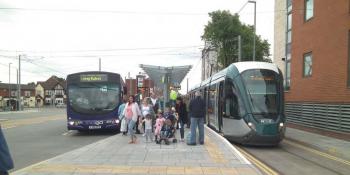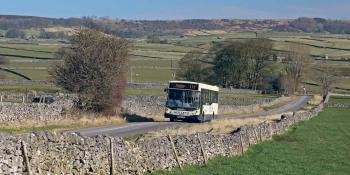Electric and biogas vehicles are helping tackle air quality in Nottingham, offering a stark contrast with the rest of the region
Just as with the Workplace Parking Levy, Nottingham offers a masterclass in adopting alternative fuels to improve air quality. Unlike some of our other big cities, it has been pro-active in tackling the causes of poor air quality, rather than resorting to a punitive charging regime.
As long ago as 2008, the city council sponsored a trial of ethanol fuel — popular in Scandinavia — in three Nottingham City Transport Scania OmniLink single-deckers. While they had a reduced carbon footprint, the vehicles were significantly more expensive than conventional diesels, as also was the fuel itself. All three were converted to diesel by 2013.
The council then placed its faith in battery electric buses, specifically the Optare Solo EV. Eight were delivered in 2012, four being used by Nottingham Community Transport (today’s CT4N) and four on the high profile free Centrelink service run then by Trent Barton. These too have since passed on to CT4N.
Grants from the Department for Transport’s Green Bus Fund and money from the Workplace Parking Levy have bridged most of the gap between the cos…




